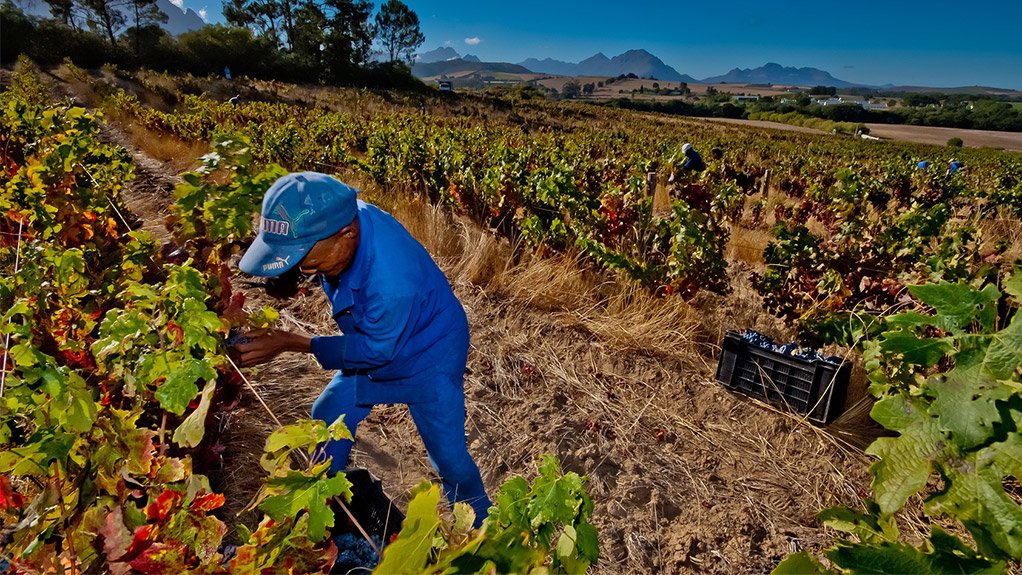Measures in place to boost the Western Cape economy



BEVERLY SCHAFER Growth in the Western Cape economy slowed down over the past years because of the drought that impacted on some of the province’s key sectors such as agriculture and tourism
OPPORTUNITIES The agricultural sector saw 24 000 new jobs created
The Western Cape economy remains relatively stable despite challenges affecting consumer spending, says Western Cape Economic Opportunities Minister Beverley Schäfer.
“The province has recorded good gains in employment, and continues to record the lowest expanded unemployment rate in the country.”
Unlike other provinces, consumer spending makes up a greater portion of the Western Cape provincial gross domestic product, she adds. As a result, factors that impact on consumer spending, such as value-added tax and petrol price increases, affect the economy.
Over the past few years, the local economy has been volatile, recording muted growth. It has also bucked global trends, which have reflected positive economic growth. However, growth in the Western Cape economy slowed down over the past years because of the drought that impacted on some of the province’s key sectors such as agriculture and tourism.
Meanwhile, Schäfer comments that drought and climate change remain major challenges in the province, as it still has not rained in some areas and, in those areas where it has rained, it is estimated that the agriculture sector will take about three years to fully recover.
However, Schäfer says there are measures in place to curb these challenges. The province has introduced a smart farming strategy aimed at minimising the shocks of climate change on the agriculture sector. She adds that the strategy entails using conservation farming methods, which has experienced major uptake across the province.
“We have also invested in research into crops, such as berries and cherries, which have export potential, use less water and are more labour intensive.”
She points out that the province has developed Project Khulisa to run until 2019, focusing on growing the economy and jobs in the agroprocessing, tourism, and oil and gas sectors. The strategy has so far doubled wine exports to Angola and China.
“The Air Access project has negotiated 14 route expansions and added 700 000 additional inbound seats into Cape Town International.”
This complements the launch of a new investor campaign, which will highlight the province’s strengths to investors, as well as the province’s immanent launch of a new campaign aimed at the international tourism market.
Trends and Technological Advances
Schäfer alleges that South Africa has one of the world’s fastest growing green economies, with about 70% of all green manufacturing occurring in the Western Cape. “With the official designation of the Atlantis Special Economic Zone – a dedicated green zone – we expect that green technology and manufacturing will continue to grow and develop in the province.”
The drought has highlighted issues around resilience, with major investments in water technologies and systems by government and the private sector in the province.
Schäfer states that the Western Cape Department of Agriculture has released a study on the impact of the Fourth Industrial Revolution on agriculture in the province. The study shows that the sector can benefit from using technology without having to sacrifice jobs, provided that training and education, as well as expanded access to technology in the agriculture sector, occur.
The agriculture department is pursuing the recommendations of this report to keep pace with the changing environment. The department has been at the forefront of technology use, having introduced Fruitlook – a digital mapping system that enables farmers to access images of their crops to determine precise watering needs.
“The Western Cape government has also set itself a goal of becoming a leading global technology hub, with 80% access to the Internet and investments worth R10-billion into the agriculture sector by 2030 . . . the Department of Economic Development and Tourism is now focusing on developing the skills required by this growing sector,” Schäfer comments.
Education and Skills Development
The Western Cape’s flagship project, Broadband Game Changer, has connected close to 1 900 sites, including schools and libraries, to the Internet. More than one-million learners now attend a school that is connected to high-speed Internet.
Schäfer says the province’s focus has been on skills development, including the Apprenticeship Game Changer programme, which works with educational institutions and technical and vocational education and training colleges to provide apprenticeships for young people. The Western Cape is also working on developing a specific computer technician apprenticeship programme that is expected to be rolled out in 2019.
Going forward, there will also be a renewed focus on the development of jobs and opportunities for young people, as well as the development of small, medium-sized and microenterprises, as well as entrepreneurs,” she adds.
Statistics South Africa’s quarterly labour force data reports that the province created 14 000 of the country’s 98 000 new jobs in the third quarter, with major contributing sectors being finance, community services and trade. “The unemployment rate in the province for the quarter was 20.4%, however, because some of the province’s biggest sectors such as agriculture and tourism are seasonal; we tend to track job creation year-on-year as this gives us a more accurate comparison.
“Compared with the third quarter of 2017, the province created 95 000 of the 188 000 new jobs created in the country, with finance and trade being major sectors again. The agriculture sector saw 24 000 new jobs created,” she concludes.
Article Enquiry
Email Article
Save Article
Feedback
To advertise email advertising@creamermedia.co.za or click here
Press Office
Announcements
What's On
Subscribe to improve your user experience...
Option 1 (equivalent of R125 a month):
Receive a weekly copy of Creamer Media's Engineering News & Mining Weekly magazine
(print copy for those in South Africa and e-magazine for those outside of South Africa)
Receive daily email newsletters
Access to full search results
Access archive of magazine back copies
Access to Projects in Progress
Access to ONE Research Report of your choice in PDF format
Option 2 (equivalent of R375 a month):
All benefits from Option 1
PLUS
Access to Creamer Media's Research Channel Africa for ALL Research Reports, in PDF format, on various industrial and mining sectors
including Electricity; Water; Energy Transition; Hydrogen; Roads, Rail and Ports; Coal; Gold; Platinum; Battery Metals; etc.
Already a subscriber?
Forgotten your password?
Receive weekly copy of Creamer Media's Engineering News & Mining Weekly magazine (print copy for those in South Africa and e-magazine for those outside of South Africa)
➕
Recieve daily email newsletters
➕
Access to full search results
➕
Access archive of magazine back copies
➕
Access to Projects in Progress
➕
Access to ONE Research Report of your choice in PDF format
RESEARCH CHANNEL AFRICA
R4500 (equivalent of R375 a month)
SUBSCRIBEAll benefits from Option 1
➕
Access to Creamer Media's Research Channel Africa for ALL Research Reports on various industrial and mining sectors, in PDF format, including on:
Electricity
➕
Water
➕
Energy Transition
➕
Hydrogen
➕
Roads, Rail and Ports
➕
Coal
➕
Gold
➕
Platinum
➕
Battery Metals
➕
etc.
Receive all benefits from Option 1 or Option 2 delivered to numerous people at your company
➕
Multiple User names and Passwords for simultaneous log-ins
➕
Intranet integration access to all in your organisation



















